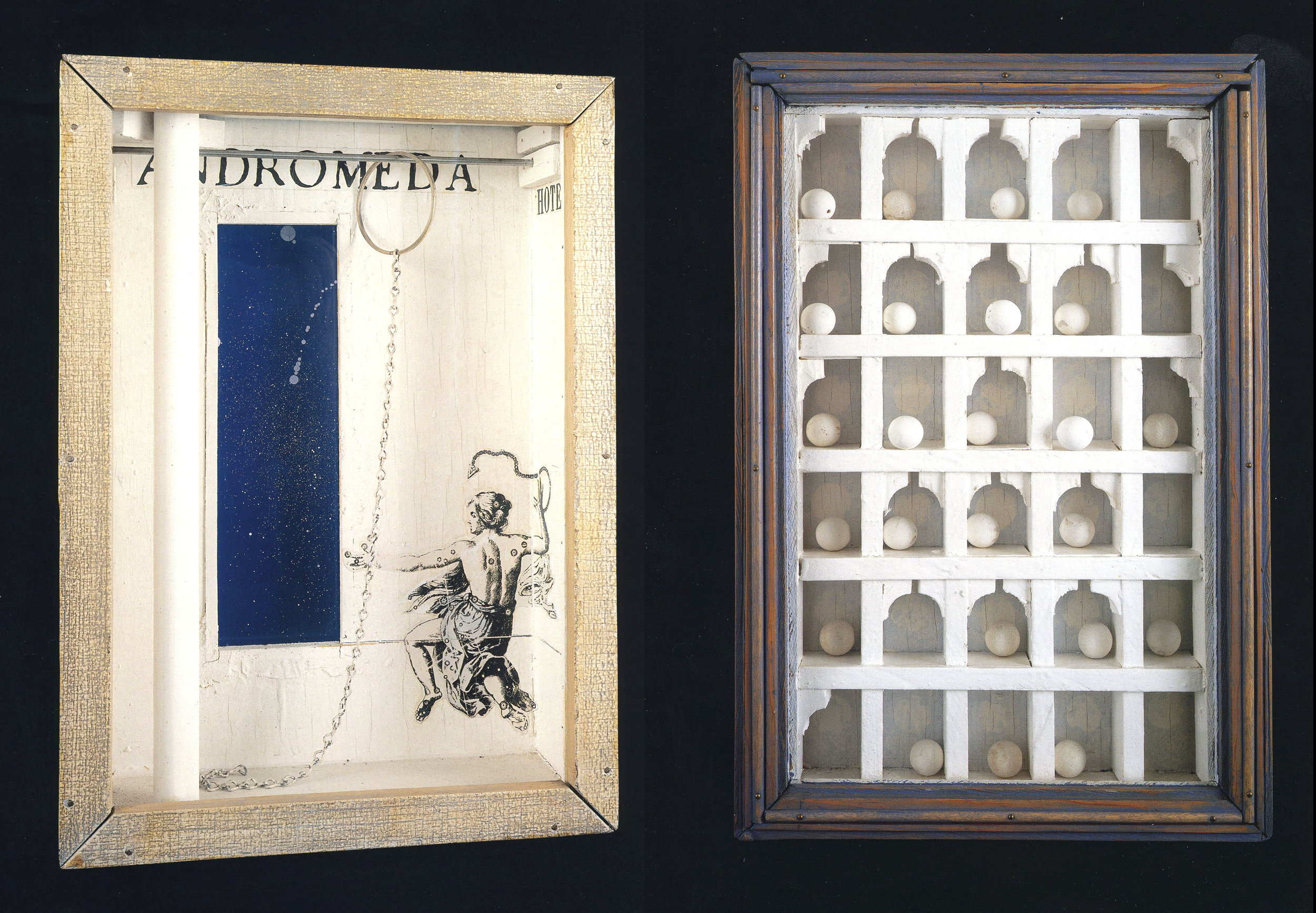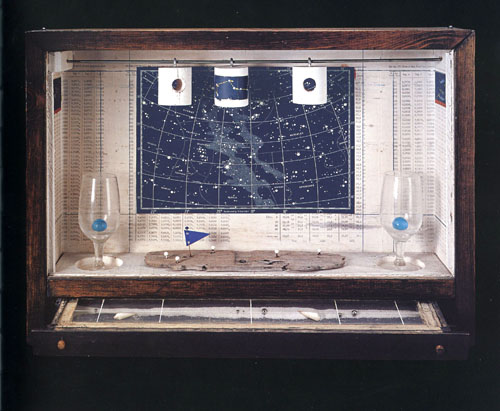Untitled (Andromeda Hotel), c. 1953-54 and Untitled ("Dovecote" American Gothic), c. 1954-56
I really like these two 'hotel' boxes of Cornell. The Andromeda says it explicitly, a single, spare white space, a housing for a drama astrological and mythical. The Dovecote is also like a little hotel, with some vacant, individual little stories playing out as each sphere makes it way around the room.
Untitled (Yellow Sand Fountain), 1955 and Untitled (Butterfly Habitat), c. 1940
Two boxes with complex and interesting thoughts on time. The Sand Fountain actually pours sand out from the top, filling and then overflowing the broken glass. Its resemblance to an hour glass is unmistakable, but it is the fragility of the glass, its destruction, that most occupies the viewer.
The Butterfly Habitat is one of many habitats Cornell made, usually with images of birds or butterflies. This one especially makes explicit the reframing of the butterflies into artificial boxes, trapping them in time. Their static nature almost conflicts with the sense of temporal decay and degradation of the fading glass front.
Untitled, c. 1956-58
This box is particularly beautiful and intriguing. A map of the cosmos, a charting of the heavens. It has a strange dual character, both scientific and precise, but still filled with the wonder of the stars racing across the night sky. The sand in the drawer moves against the gridded enclosure as well, planets and stars whirling away.
Joseph Cornell's work has long interested me and I think many architects. The boxes are framed worlds, tightly defined creations. But within them the whole world can exist. They are also like little windows, and as the architect, we are continually looking in at other people's lives, not so much looking out to the world. These works are a bit sad, somewhat melancholic - fascinated with engaging and reframing the universe, but forever outside it.
These images are scanned from the excellent book on Cornell's work: Joseph Cornell Shadowplay Eterniday published by Thames & Hudson with insightful and often amusing essays by Lynda Hartigan, Richard Vine, Robert Lehrman and Walter Hopps.



